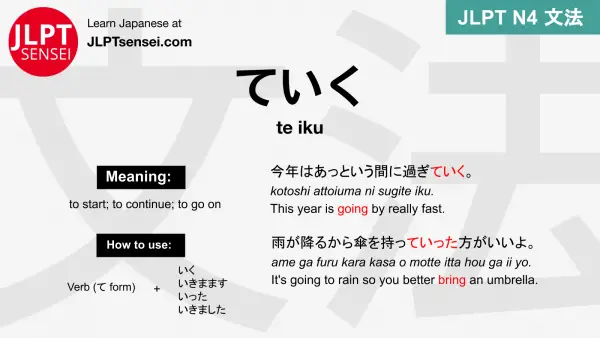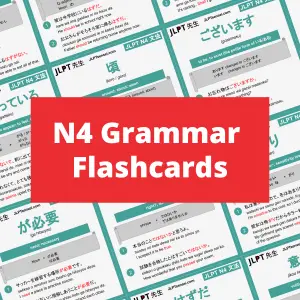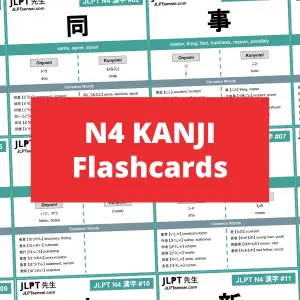Learn Japanese grammar: ていく (te iku) / ていった (te itta). Meaning: to start; to continue; to go on.
This is used after a verb to express a continued change in state, usually for something that moves away from the speaker (not necessarily a physical movement), or away from another person’s viewpoint.
For something that moves towards the speaker, instead use てくる (te kuru).
How To Use:
This grammar requires the use of て form. If you don’t know how to conjugate it, you can reference this table.
If you already know how to use て form, skip down to the examples.
| Ending | Dictionary | Changes to... | て form |
|---|---|---|---|
| う verbs (u) | |||
| す | 話す(はなす) | す → して | 話して(はなして) |
| く ぐ | 書く(かく) 泳ぐ(およぐ) | く → いて ぐ → いで | 書いて(かいて) 泳いで(およいで) |
| む ぶ ぬ | 飲む(のむ) 遊ぶ(あそぶ) 死ぬ(しぬ) | む → んで ぶ → んで ぬ → んで | 飲んで(のんで) 遊んで(あそんで) 死んで(しんで) |
| る う つ | 切る(きる) 買う(かう) 持つ(もつ) | る → って う → って つ → って | 切って(きって) 買って(かって) 持って(もって) |
| る Verbs (ru) | |||
| 食べる(たべる) | る → て | 食べて(たべて) | |
| Irregular Verbs (exceptions) | |||
| する | して | ||
| 来る(くる) | 来て(きて) | ||
| 行く(いく) | 行って(いって) | ||
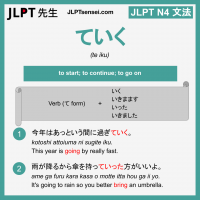
Click the image to download the flashcard.
Download all N4 grammar flashcards.
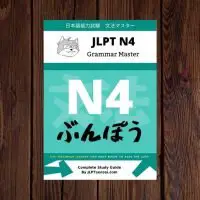
Download our complete
JLPT N4 Grammar Master E-book.
Access ALL extra downloads, ebooks, and study guides by supporting JLPT Sensei on Patreon.
ていく - Example Sentences 例文
Each example sentence includes a Japanese hint, the romaji reading, and the English translation.
Click the below red button to toggle off and and on all of the hints, and you can click on the buttons individually to show only the ones you want to see.
Example #1
歩いていく。
Example #2
彼は毎日駅まで歩いていきます。
Example #3
船は港を出ていった。
Example #4
彼は京都へ引っ越していった。
Example #5
今年はあっという間に過ぎていく。
Example #6
何も言わずに部屋を出ていきました。
Example #7
私は日本語を聞くことに慣れていきました。
Example #8
雨が降るから傘を持っていった方がいいよ。
Example #9
それは今後決定していきます。
Example #10
結婚してからも仕事を続けていくつもりです。
Vocabulary List 語彙
| Kanji 漢字 | Kana カナ | English 英語 |
|---|---|---|
| 歩く | あるく | to walk |
| 結婚 | けっこん | marriage |
| 仕事 | しごと | work |
| 続く | つづく | to continue |
| つもり | plan | |
| 今年 | ことし | this year |
| あっという間に | あっというまに | just like that |
| 過ぎる | すぎる | to pass by |
| 彼 | かれ | he |
| 京都 | きょうと | Kyoto |
| 引っ越す | ひっこす | to move |
| 船 | ふね | boat |
| 港 | みなと | port; harbor |
| 雨が降る | あめがふる | to rain |
| 傘 | かさ | umbrella |
| 持っていく | もっていく | to bring |
| 今後 | こんご | from now on |
| 決定 | けってい | decide |
| 毎日 | まいにち | every day |
| 駅 | えき | station |
| 私 | わたし | I |
| 聞く | きく | to listen; to ask |
| 慣れていく | なれていく | to get used to |
| 何も | なにも | nothing |
| 部屋 | へや | room |
| 出ていく | でていく | to leave; to go |
View all JLPT N4 Vocabulary Lessons
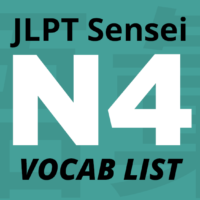
View all JLPT N4 Grammar Lessons
JLPT N4 Study Guide
JLPT N4 Grammar Master [e-book]
Complete Study Guide
This e-book includes every grammar point you need to know in order to pass the JLPT N4, with detailed usage notes and numerous example sentences.
Pages: 293.
Grammar lessons: 131.
